Sustainable marketing is crucial when marketing environmental and socially responsible brands and their values. One of the key activities in sustainable marketing is SEO. Whether you are launching a website for your ethical brand or publishing content such as blog posts, SEO will help you to make your website better for search engines.
Search engine optimization won’t only help you increase your visibility through different search engines, but at the same time, it’ll also help you increase your website traffic and that way often increase your sales. If you are not familiar with SEO tactics, we highly recommend you do some research for the best practices, starting by reading this article.
There are multiple ways to improve your SEO and this article will be focusing specifically on discovering the top keyword search tools for SEO to reach the target audience of sustainable brands, the conscious consumers.

What is SEO & why is it important for sustainable marketing?
SEO stands for Search Engine Optimization. According to MOZ, Search Engine Optimization is the practice of increasing both the quality and quantity of website traffic, as well as exposure to your brand, through organic search engine results. Organic refers to anything non-paid. To improve your SEO, you must fully understand what your audience is actually searching on the internet, which words they are using for their searches, and what they wish to find.
Of all US searches, only 2.8% of people click on paid advertisements. This statistic alone explains why SEO is so important. It is quite unlikely that people will click your paid advertisements and it is highly unlikely that your audience will find your brand through organic search if you have done nothing to optimize your website.
Where to start?
Now that we understand how essential Search Engine Optimization truly is, you might wonder where to start. To start off, we recommend you do a thorough keyword research. Keyword research is an essential part of sustainable marketing and will help you to understand, which words attract your target audience the most.

What is keyword research?
Hubspot defines keyword research as the process of finding and analyzing search terms that people enter into search engines with the goal of using that data for a specific purpose, often for search engine optimization or general marketing. If you have done your research well, you will be able to get your website content in front of your target audience.
How to do keyword research
Start your keyword research by making a list of topics that are relevant to your sustainable brand. Write down a few general categories that you will then expand with different keywords. If you have a blog or other frequently published content, you might be able to find the general categories from these posts.
After you have these general categories, you can start identifying different keywords that fit into these topics. For example, if your category is “sustainable brand” think of what goes to this category and is relevant to your brand. As an example, you can add “eco-friendly” or “greenwashing”. The most important thing to understand when creating these general categories and keywords is that you want these words to be something a person within your target audience would possibly search through a search engine. After all, you want people to find your brand above anything else.
When you have a list of keywords you would like to use, start analyzing their strength. This can be done with a keyword research tool, below we introduce you to five tools to try out. The goal is to find out how high is the search volume of the keyword and how steep is the competition. It is important to understand that if the volume of the keyword is low and people are not using it, it’ll do no good for your brand. Instead, focus on keywords which volume is high. Regarding the competition, according to MailChimp, the paid tools differentiate between competition for paid ads versus organic search. You want a higher search volume with lower organic search competition.
When you have discovered the categories, keywords, and their volume and competition, you can make a selection of the most relevant and best-performing keywords to use in your SEO.

Sustainable marketing: Top keyword search tools for SEO
MOZ
Moz is a marketing analytics software for SEO, links, and brands. It offers services from site audits to keyword research and everything in between you might need. The free version allows you to explore keywords and links, do competitive research, and examine and analyze important search, social and page metrics of any site you visit right in your Chrome browser.
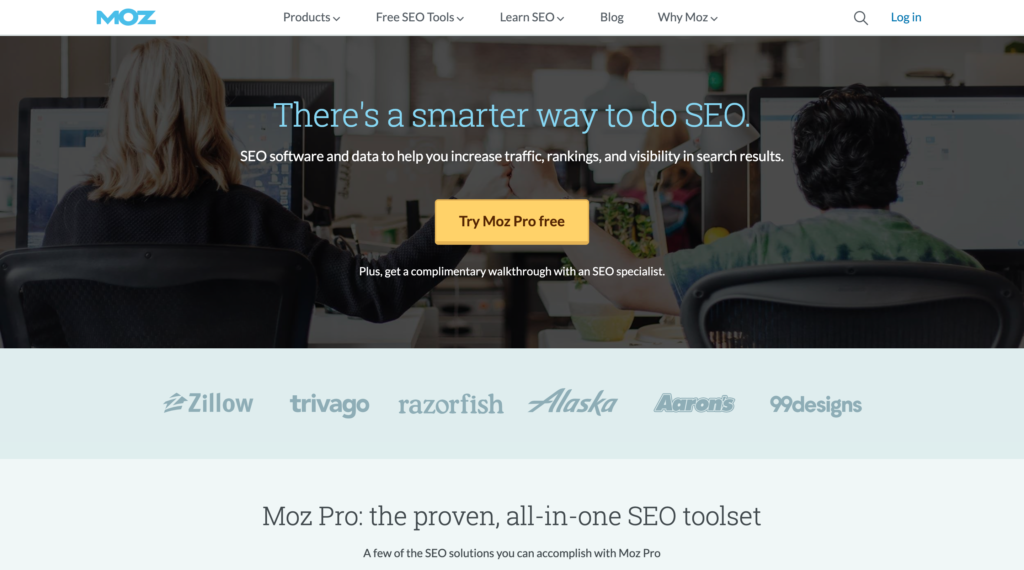
SemRush
SemRush offers 50+ tools on SEO, content marketing, competitor research, PPC, and social media marketing to help you with your growing online audience. With SmRush, you can uncover millions of national & local keywords and increase your brand’s visibility.
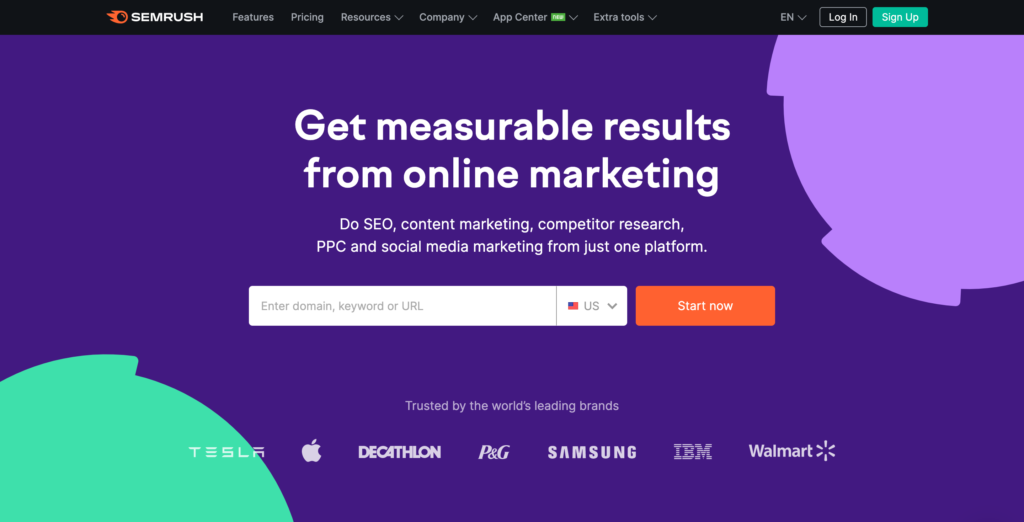
Google Trends
Google Trends is a website that analyzes the popularity of top search queries in Google Search. It allows you to easily discover the most used keywords within a specific country or different categories.
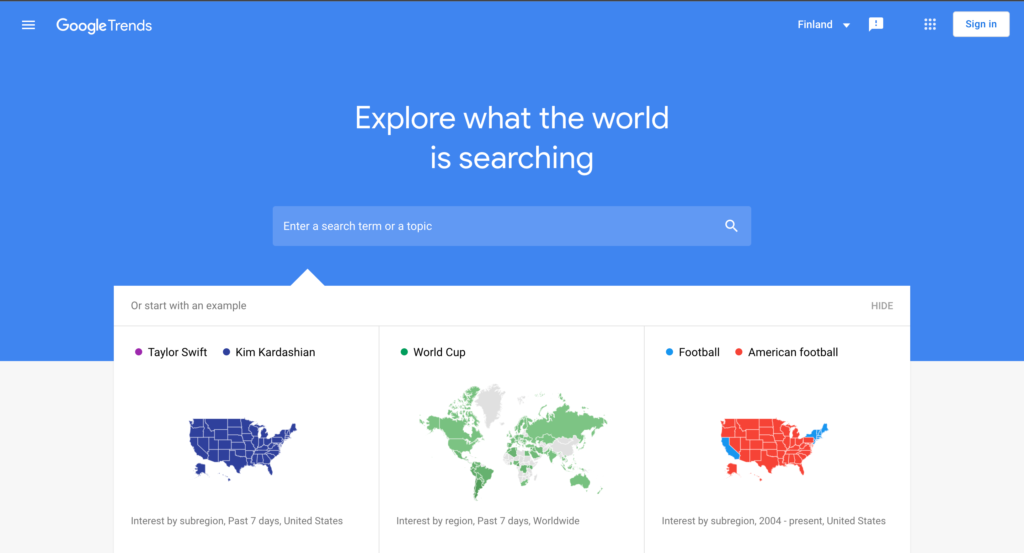
Keyword Surfer
Keyword Surfer differs from the first three keyword search tools since it is a Chrome Extension for content and keyword research. The tool is completely free to download and use. Keyword Surfer helps you to easily find new keyword ideas, reveal their monthly search volumes, and most importantly, ensure your content is relevant, high-quality, and competitive.
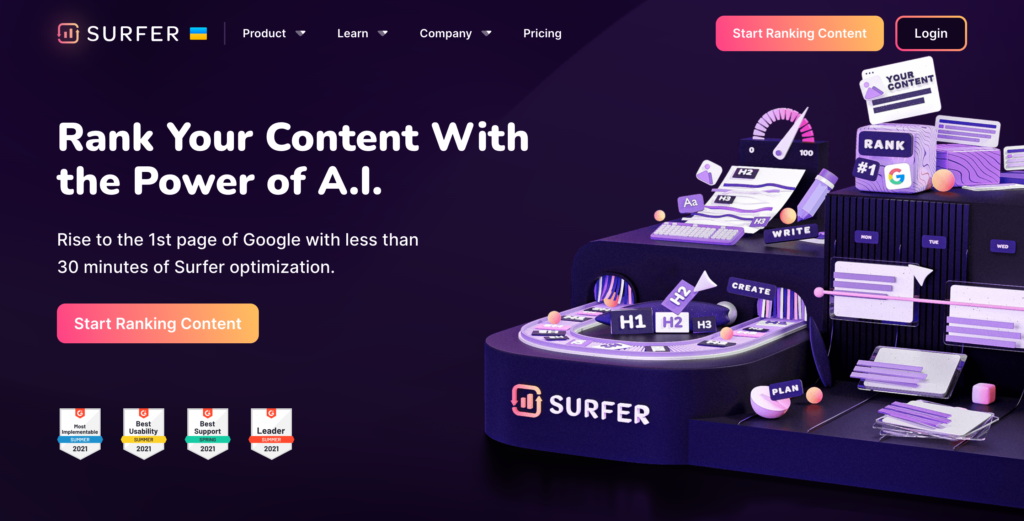
QuestionDB
QuestionDB differs from the traditional keyword tools. Instead of searching keywords, this tool helps you to uncover your audience’s questions. You start by entering a broad keyword into the tool and it’ll find you relevant questions that might be helpful for your content creation strategy.
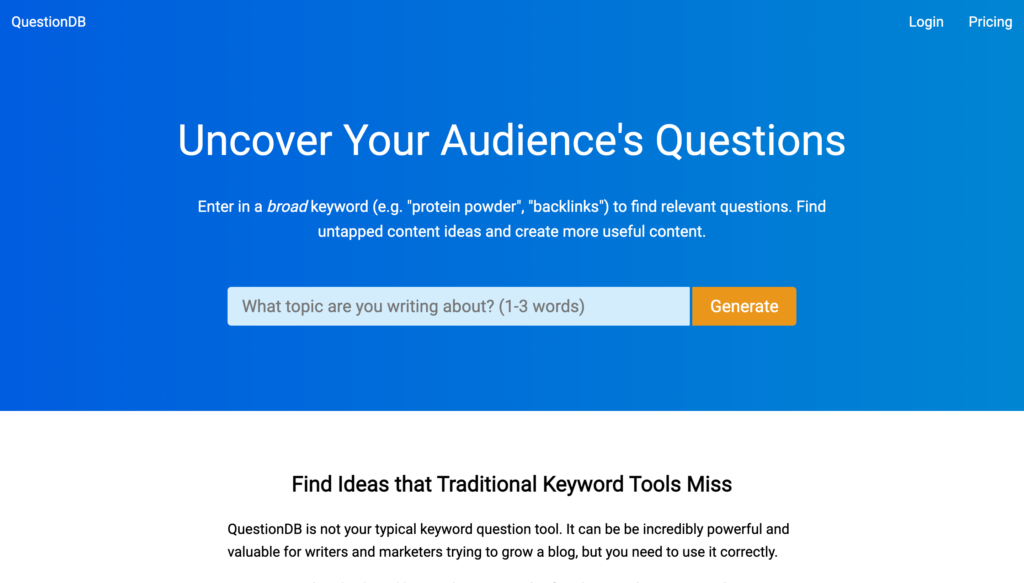
Making a thorough keyword search takes time but we highly recommend you to do it carefully. With the most relevant, best-performing keywords, you can drastically increase your brand’s visibility and attract your target audience to your brand. We hope this article and our keyword tool research will help you to find the best one for your sustainable brand’s needs.
Author: Oona Yletyinen


